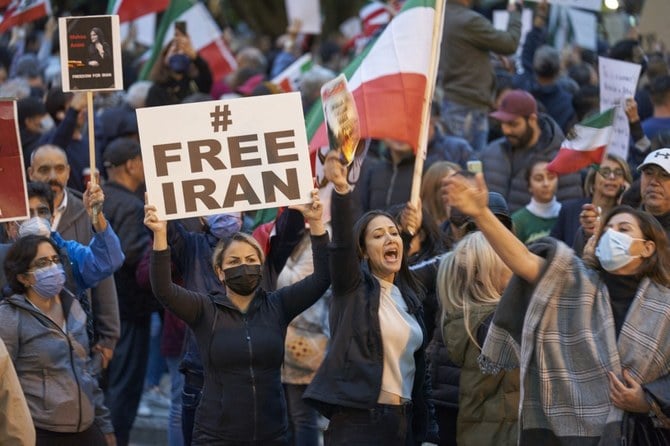
As long as the Iranian regime exerts significant influence in Iraq and interferes in its domestic affairs, it will most likely continue to be unstable.
After last month’s elections, groups aligned with the Iranian government lost dozens of seats in the Iraqi parliament. Instead of accepting the election results, some supporters of these political groups poured onto the streets, resulting in violent clashes between demonstrators and government forces.
This is not the first time that clashes have erupted after the Iranian regime and its militia groups didn’t get the result they wanted at the ballot box. For example, in 2016, when Iran’s preferred candidate for prime minister, Nouri Al-Maliki, was replaced by Haidar Abadi, protesters stormed the Iraqi parliament building and demanded the speaker halt the session.
The losses the Iran-backed groups experienced in last month’s elections demonstrate the increasing opposition of the Iraqi people to the Tehran regime and its destructive role in the country. In fact, the Iranian regime’s popularity is now at its lowest ebb, not only in Iraq but also in other Arab states such as Lebanon.
In the last few years, the international community has witnessed many people in Lebanon and Iraq taking to the streets to express their opposition to Tehran’s interference in their nations, either directly or indirectly through militia groups like Hezbollah. In May, protesters attacked the Iranian regime’s consulate in the southern Iraqi city of Karbala. The Karbala consulate was also targeted in November 2019, during the nationwide demonstrations, when protesters accused Tehran of interfering in Iraqi affairs. The Iranian leaders’ concerns have increased lately as a result of the increasing opposition to its meddling in Iraq.
The Iranian leaders have been spreading false narratives through their state media and via diplomatic means, insisting that the regime is only helping Iraq become stable. But Tehran is pushing Baghdad to follow in the footsteps of its revolution. As the founder of the regime, Ayatollah Khomeini, stated: “We will export our revolution to the four corners of the world because our revolution is Islamic.” Khomeini’s intentions are also incorporated in the Iranian constitution, which emphasizes that “the mission of the constitution is… to create conditions conducive to the development of man in accordance with the noble and universal values of Islam,” providing “the necessary basis for ensuring the continuation of the revolution at home and abroad.”
The Iranian regime has skillfully utilized its soft and hard power to exert influence and control Iraq. By establishing ties with and training, financing, unifying and arming the Iraqi Shiite militias, Iran seeks to accomplish several objectives, such as helping them achieve political success to enter the parliament and have a say in the country’s internal affairs, aligning them with Iran’s interests. This can ensure Tehran’s influence in the country for the long term.
The Shiite militias also allow Iran to exert more influence in Iraq, thus tipping the regional balance of power in its favor and against its neighbors and the US.
Economically speaking, Tehran has used trade to ratchet up its leverage over Baghdad. If the Iranian regime does not get the results it desires in Iraq or if the Iraqi government becomes reluctant in preserving Tehran’s political and economic interests, it can threaten the government by telling Shiite leaders to move against it and threaten its hold on power.
Iranian leaders across the political spectrum, including moderates, hard-liners and Principlists alike, follow the directions of the key decision-makers — Supreme Leader Ali Khamenei and the senior cadre of the Islamic Revolutionary Guard Corps — when it comes to Iran’s role in Iraq. Any opposition from Iran’s political figures toward the country’s current role in Iraq would mean opposition to the supreme leader and the IRGC. That is why no influential Iranian politician has ever spoken out.












